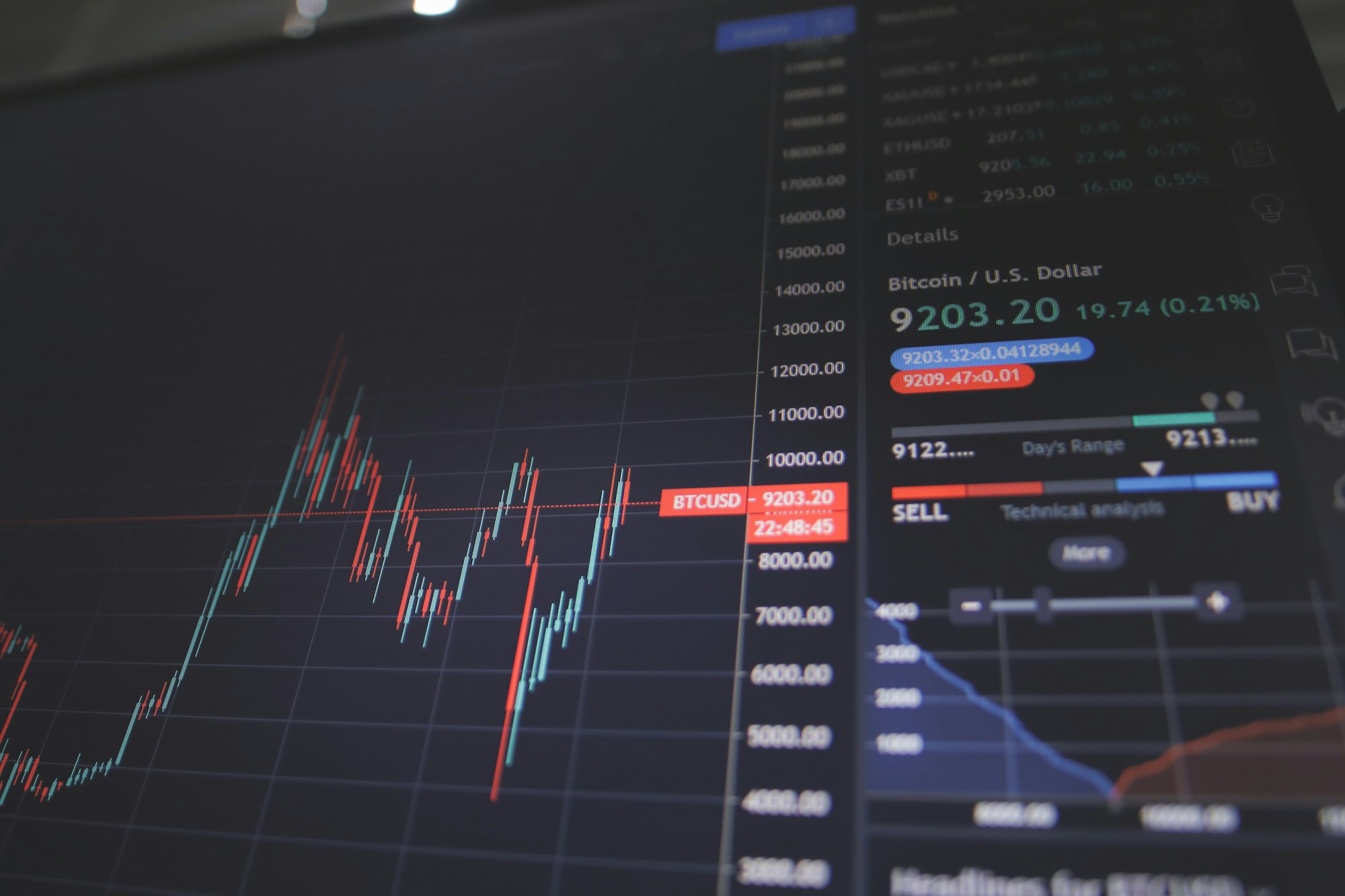Passive Income: Investing

I've been thinking about how to earn passive income for a while - I believe that earning money should be separate from the time I invest in it. Here are some of the strategies I've been looking at and thinking of employing, with specific details to help you out. Written with examples for the Singapore context, but the ideas apply anywhere.
This article contains referral links to products I use.
In this article, I define "Investing" as using money to make money, by say buying investment products or earning interest. Returns quoted are per annum, and of course subject to change. Roughly in terms of amount of risk exposure, from lowest to highest.
Getting interest on deposits
With the current interest rates, some banks are offering pretty attractive interest rates on even small deposits with them. Below are two options I'm currently using in Singapore. You could shop around your banks to see if they offer any high interest rate accounts with no fixed deposit period. I like this method because it is largely risk free - the only risk being that the bank could just change their interest rates whenever they like.
Topping up CPF Account (2.5% - 5%)
You are already earning interest on your CPF balances, up to 5% if it's less than S$60,000 total. If you'd like to earn more, you can put more money into the Special Account by either transferring money from the Ordinary Account or adding in cash, but there are limitations in how you spend money from the Special Account. Click here to understand more.
UOB One Account (0.05% - 7.8%)
UOB One Account is pretty good if you can hit their criteria. The first criteria is to spend $500 per month (with exclusions). The second is to credit 3 GIRO transactions (electricity bills, taxes etc also count) and you get 2.50%. If, instead of GIRO you credit your salary of at least S$1600 per month, you get 3.85%. I do find a bit of difficulty hitting the $500 spend per month, but by sharing expenses with other people I make it work.
However, there is a minimum deposit of $1000, and there are quite a few exclusions. If you have more than S$100,000, it also will not make sense for you. You can learn more here.
Wise Assets (3.63% - 10+%)
Wise (formerly TransferWise) is now offering a product called Assets. Interest is credited daily on your cash balance, meaning it compounds daily, too. You are still able to use your balance as per usual. The rates you earn depends on the currency - for USD, the money is in stocks via on index fund, while for SGD, the money is in a money market fund. One caveat is they withhold 3% of your balance for market volatility.
MariBank (2.88% - 4%)
Maribank is a new banking solution by Shopee, offering a similar interest rate on a money market fund like Wise. However, I like that there's a high-yield savings options too, where you get 2.88% p.a. interest credited daily.
CIMB FastSaver/StarSaver Account (3.50%) - now reduced
CIMB is recently running a promotion for new customers who do not have a savings/deposit account with CIMB. You can earn 3.5% on up to 75,000 if you sign up for FastSaver, or 3.5% unlimited if you sign up for StarSaver. However, if the promotion is not running, you need to pick which account to use. Without the promotion, FastSaver is more suitable if you want to put in less than $75,000, and StarSaver is more suitable for those with $250,000 and up. The promotion rates end on 31 December 2023, and you would need to open an account by 31 July 2023. The non-promotional rates are not that good for both accounts, either, due to the tiered system. Otherwise, the only condition for you to earn interest is to deposit a minimum of $1000, and you don't get charged a fee for not meeting that target.
GXS (3.48%) - now 2.85%
A new banking solution GXS bank looks interesting, if you have access to it. No minimum savings or fees and interest credits daily, so it could be a good alternative. However, CIMB is still slightly better with current promo rates.
Standard Chartered Jumpstart Account (2%)
Standard Chartered Jumpstart account is good too for anyone to get started with earning interest. No strings attached 2.0% per annum is pretty damn good. There's no minimum deposit required and no spend requirements. I regret not starting this one earlier! If you have more money to meet the requirements of the other products, it may be worth taking a look at opening accounts with them too.
Stocks and Bonds (2% - 10%)
Government Bonds (2% -3%)
Singapore offers a host of government bonds that provide decent returns with fairly low risk. You can check back frequently to see what the return each time is; it can vary.
Robo-advisors (4%-10%?)
I'm not sure on this one anymore because the fees can erode your earnings, and actively managed portfolios may not be as good as just buying an ETF. Examples are Stashaway and Endowus (affiliate links). I've still kept them around just for variety and also to invest in ESG-related funds.
Low-cost ETF (10%-15%?)
You could always just choose to buy the S&P500 or equivalent of your choice. With fractional shares offered by some trading platforms like Tiger Brokers or Interactive Brokers, you can get started with very low cost.
Picking stocks (possibly higher return)
If you're okay with actively managing your portfolio a little bit more and thinking about the companies out there and how they work, you can pick stocks to invest in, which can boost your earnings a lot if you do it right and are lucky.
Angel Investing / private credit (?%)
Angel investing is more of a hits-based solution than anything else - meaning you should expect most of your investments to fail. You could check out crowdfunding investment opportunities on sites like OurCrowd and CrowdCube to just dip your toes into it without putting in too much money nor spending too much on fees.
Otherwise, you could also consider investing in small businesses or providing private loans to friends who are trustworthy. Though of course there is a chance of loss involved.
Cryptocurrency (?%)
Cryptocurrency can be a good option for those with bigger risk appetites and believe that crypto will be used in a more widespread way in the future. I recommend you understand the terms mentioned in this section before you decide to start investing in crypto.
Holding (or HODLing)
If you believe that the value of crypto will increase, you can simply buy and hold it.
Staking or yield farming (0.30% - 150%)
Staking and yield farming is a little bit like depositing at a bank, except your deposits are often not insured and exposed to higher risk (with higher returns). Many decentralised and centralised exchanges offer such services. Typically, the more common the coin, the less risky it is to stake it or buy it (BTC, ETH, USDC are some examples of "safe" coins).
For example, for decentralised exchanges, there's PancakeSwap, ShapeShift, SushiSwap, and UniSwap, among many others.
On the centralised exchanges side, some of them offer investment products where you get pretty good returns. For example, Binance and Kraken each offer staking services for different tokens. Cake DeFi also looks interesting and I've been experimenting with them lately for Bitcoin.
However, there is a risk of these exchanges or protocols collapsing due to a lack of regulations; FTX, a centralised service, is one such example (used user funds inappropriately and illegally).
Trading (?%)
Trading crypto is 24/7 unlike traditional markets, so you have more chances to make a profit or lose money. However, the fees for crypto trading can be higher than for fiat/traditional trading, with higher spreads.
ICOs (?%)
ICOs - initial coin offerings - are one way projects use to raise funds. If you believe in the project and the future of it, this could be a good way to invest your money. Be wary of scams!
NFTs (?%)
You could also buy on-chain assets such as NFTs and hope that they will increase in value. Be wary of scams and rug pulls; make sure the project makes sense. For NFTs, if the project has utility or value beyond hype, it could be a good investment.

